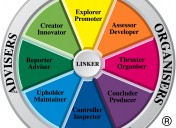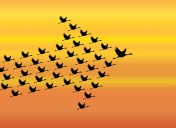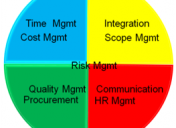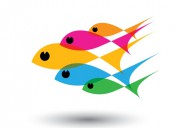What can geese teach us about teams?
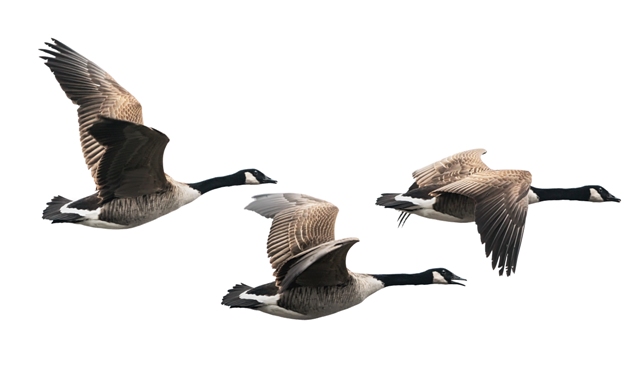 Have you ever wondered why geese fly in a ‘V’ formation?
Have you ever wondered why geese fly in a ‘V’ formation?
Turns out geese innately know the secret to great teamwork.
They have a common destination and work in perfect unison to get there together.
Better together
When geese fly together as a team, each goose provides additional lift and reduces air resistance for the goose flying behind it. Flying in this ‘V’ formation, the whole flock adds 71% more flying range than if each bird flew alone. When a goose drops out of the v-formation, it quickly discovers that it requires a great deal more effort and energy to fly, and gets back into formation pretty smartly to take advantage of the lift from the bird immediately in front.
Communication and support
Geese honk to communicate with each other – to give regular encouragement and feedback. They help each other, too. When a goose gets sick or wounded, two geese drop out of formation and follow their fellow member down to help provide protection. They stay with this member of the flock until he or she is either able to fly again or dies. Then they launch out on their own, creating another formation, or they catch up with their own flock.
Leadership matters
Lastly, geese rotate leadership. When the lead goose gets tired, it drops back into the formation and another goose flies at the point position.
Geese know that the whole is far greater than the sum of its parts and leverage the power of the team to yield remarkable results. Their migratory distance can be up to 4000 km! And they achieve this with clear goals, focus, empathy and compassion.
What sets good teams apart?
Katzenbach and Smith, in their best-selling book ‘The Wisdom of Teams’ (1993; reprinted in 2003), reached similar conclusions regarding team performance. From their extensive research, they concluded that a team, as distinct from a working group or committee, is “a small number of people (fewer than 25) with complementary skills who are committed to a common purpose, set of performance goals, and approach for which they hold themselves mutually accountable.”
Katzenbach and Smith note that teams function best when they can depend on their leaders to:
- Set a compelling vision
- Stretch team goals
- Set clear accountability standards
- Communicate regularly
- Create dependable, supportive processes
They see teams as the performance engines of organisations.
Teams outperform groups or individuals because team members learn from each other and build on one another’s achievements
The fun they have in the process adds energy to the workplace and carries teams through transformational challenges such as cultural change and market vagaries.
The best teams invest a tremendous amount of time and effort exploring, shaping and agreeing on a purpose that belongs to them both collectively and individually. This ‘purposing’ activity continues throughout the life of the team and is often facilitated by the application of a valid and reliable psychometric tool like the Team Management Profile (TMP). TMP offers invaluable and objective data to allow leaders to form, adapt and sustain high-performing teams.
Every company faces specific performance challenges: Teams are the most practical and powerful vehicle at management’s disposal.
Want more? We’re here for you
To learn more about how you can use TMP to develop high-performing teams
Call 1300 ANCORA (1300 262672)


